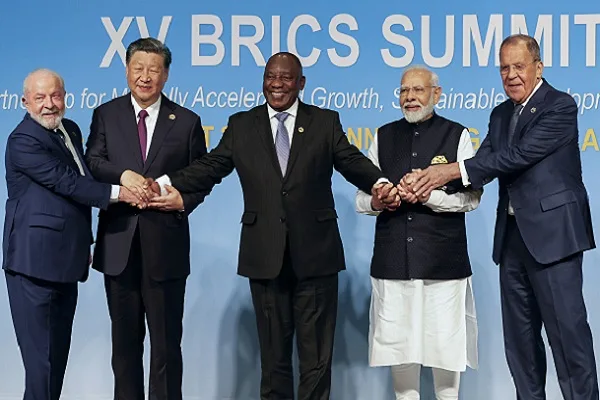Ramaphosa Brings Bandung and Ubuntu Spirits to BRICS
Taking inspiration from the Bandung Conference in 1955 — whence the Third World gathered for a greater say in world affairs — South African Ramaphosa called for the equality of nations. He painted a vision for a fairer and more just world where the concerns and aspirations of all nations, big or small, will be duly considered.
Actually, the theme of the BRICS Summit (#BRICS2023) highlighted ‘Inclusive Multilateralism.’ In the same spirit, the Joint Declaration, issued at the end of the 15th BRICS Summit, called for reforms of the United Nations (UN) and Multilateral Development Banks (MDB).
Continuing along this line of action, the BRICS established the Women Business Alliance, the Youth Council and the NGO Dialogue to give voice to every segment of the civil society.
“We still seek to overcome polarity and division. We want a world without barriers between north and south, east and west, a world in which we work together underpinned by mutual respect. Through the 15th #BRICS summit and this dialogue we should strive to advance the Bandung spirit of unity, friendship and cooperation.”
South African President Cyril Ramaphosa
As per the African Ubuntu spirit, no one must be left behind. Africa cannot remain at the bottom of the Global Value Chain (#GVC) as a mere exporter of raw materials, but must graduate to a higher level.
In particular, with regards to the #EnergyTransition and the production of Electric Vehicles (#EV), Africa is geared up to manufacture the batteries locally since all the #CrticalMinerals are readily available on the continent. As a matter of fact, South Africa has a mature automobile industry which has already started its journey towards #decarbonization.

Therefore, Africa must be able to reap greater benefits from global trade and investment. The #AfCFTA, once fully operational, will present one huge single market with tremendous opportunities.
In certain cases, Regional Economic Communities (REC) have displayed shortcomings in implementing regional agreements and projects. More effective regional coordination is thus necessary to enhance regional and continental integration.
In order for Africa to obtain its fair share of the global economic pie, it must pursue pathways toward #industrialization, #digitalization and #innovation. At the same time, the socio-economic development must be respectful of the environment and the wealth must be suitably shared.

